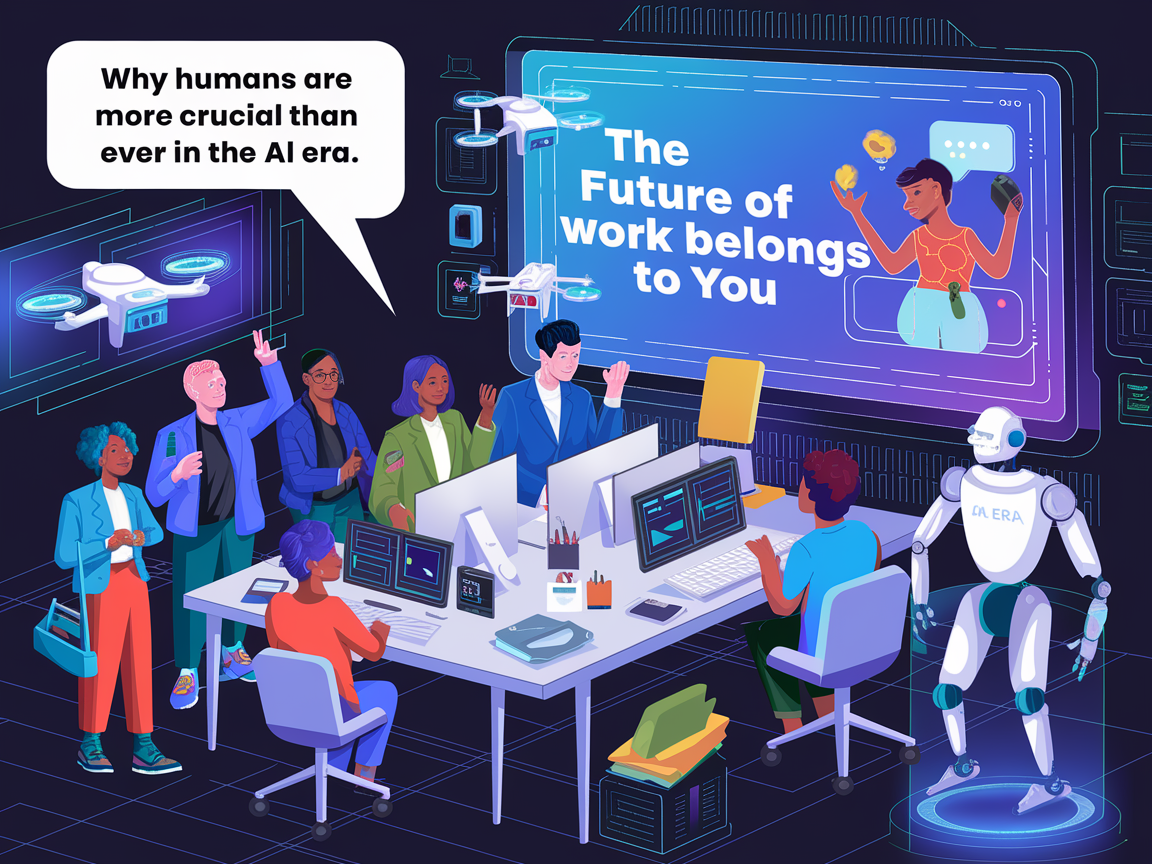TFF #7: The future of work belongs to you - Why people are more important than ever in the age of AI
|

|
At a time of rapid technological change, you as an entrepreneur or manager are faced with a crucial question: How can you lead your team through the digital transformation and not only survive, but also grow personally and professionally?
|
The challenge: people and technology in imbalance
Do you know this? While investments are being made in digitalization, employee development often falls by the wayside.
|
This short-term thinking leads to noticeable bottlenecks:
|
- Know-how is lost; the "skills shortage" strikes.
- Increasing complexity and a lack of time are paralyzing day-to-day business.
- Innovation leads to frictional losses.
At the same time, new studies by McKinsey show that up to 30% of all current working hours could be replaced by automation by 2030.
|
So is relief in sight?
This does not apply automatically, but primarily to those companies that find a harmonious mix: AI takes over repetitive tasksdata analysis and standard processes, while employees concentrate on the, what people do best - creative problem solving, interpersonal communication and strategic decisions.
|
A lot can be achieved with this approach:
|
- Acceptance of new technologies increases as everyone involved sees a direct benefit.
- People gain valuable time for innovation and personal relationships, which is also felt by customers.
- Productivity per employee increases without overloading.
This is also reflected in the figures. According to McKinsey, companies that place people at the center of their AI strategy achieve a 300% higher sales performance (!) per employee compared to the industry average.
|
The key is not to see humans and AI as opposites, but as ideal complements.
|
The following steps will take you there:
- Investing in people, not just in technology:
Develop employees' understanding of AI just as much as the technology itself. A workshop with the management team is often a good place to start.
- Identify the right human-AI interfaces:
Find out where your employees can benefit most from AI support. Office tasks that occur in all SMEs are a good place to start.
- Expand flexibility:
Develop models that take both technological and human developments into account. Sharing ideas with other SMEs on an equal footing is particularly helpful here.
- Developing employees instead of replacing them:
Recognize the skills that already exist in your team and develop them further. Train human skills such as communication or critical thinking.
- Integrating AI expertise into everyday working life:
Make the use of AI tools a matter of course. Let employees discover new applications that improve their workplace.
For SMEs in Liechtenstein and Switzerland in particular, a people-centric approach offers enormous opportunities to overcome bottlenecks and at the same time take advantage of personal proximity.
|
The future of work belongs neither to AI alone nor to humans alone - it belongs to the perfect interplay between the two.
|
P.S.: Would you like to read more about this topic?
|
👉 Download the new McKinsey study here:
|
|
|
|